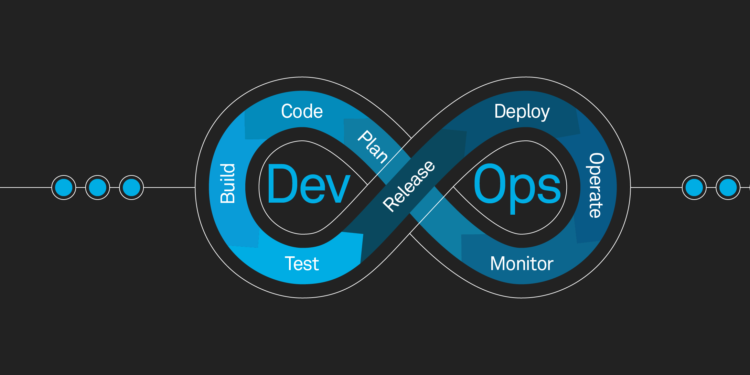The rapid advancement of artificial intelligence (AI) has significantly impacted various industries, and DevOps is no exception. AI-driven tools are transforming the DevOps landscape by enhancing automation, improving efficiency, and streamlining workflows. With AI, DevOps teams can detect issues faster, optimize performance, and accelerate software delivery while maintaining high security and reliability.
In this article, we explore some of the essential AI tools that are revolutionizing DevOps practices and how they are helping teams achieve higher productivity.
1. AI-Powered Monitoring and Observability Tools
One of the critical aspects of DevOps is ensuring the smooth operation of applications and infrastructure. AI-powered monitoring tools help teams proactively identify performance bottlenecks, anomalies, and security vulnerabilities.
a) Dynatrace
Dynatrace is an AI-driven observability platform that uses Davis AI to provide real-time monitoring and root cause analysis. It detects performance issues across the application stack and suggests actionable solutions, helping DevOps teams resolve problems before they impact users.
b) New Relic
New Relic leverages AI for performance monitoring, enabling teams to gain insights into application health, infrastructure metrics, and real-user experiences. It helps DevOps professionals optimize performance by predicting and preventing potential system failures.
c) Datadog
Datadog uses AI and machine learning (ML) to analyze logs, metrics, and traces, providing full-stack observability. Its anomaly detection capabilities allow DevOps teams to detect unusual behavior in real time and take corrective measures.
2. AI-Driven Incident Management and Automation
Incident response is a crucial part of DevOps operations. AI tools help teams automate alerts, predict system failures, and enhance incident management.
a) PagerDuty
PagerDuty uses AI to detect issues and automate responses, reducing downtime and minimizing the impact of system failures. It integrates with multiple DevOps tools to provide intelligent alerting and incident resolution workflows.
b) Moogsoft
Moogsoft employs AI to correlate alerts and reduce noise, allowing DevOps teams to focus on critical incidents. It identifies patterns in system behavior and helps predict potential failures before they occur.
c) BigPanda
BigPanda utilizes machine learning to detect anomalies and automate incident responses. It consolidates data from various monitoring tools to provide a unified view of system health and performance.
3. AI for Continuous Integration and Continuous Deployment (CI/CD)
AI-driven CI/CD tools help automate software testing, deployment, and delivery processes, making development cycles faster and more efficient.
a) Jenkins X
Jenkins X is an AI-powered automation tool designed for Kubernetes and cloud-native applications. It simplifies CI/CD pipelines, automatically testing and deploying applications based on AI-driven recommendations.
b) Harness
Harness leverages AI to automate deployments and rollbacks, ensuring that releases are smooth and error-free. Its Continuous Verification feature monitors deployment health and triggers rollbacks if anomalies are detected.
c) Spinnaker
Spinnaker, developed by Netflix, incorporates AI to manage multi-cloud deployments efficiently. It automates release management and ensures applications are deployed with minimal risks.
4. AI-Powered Security in DevOps (DevSecOps)
Security is a fundamental concern in the DevOps lifecycle. AI-powered security tools help detect vulnerabilities, automate compliance checks, and protect applications from cyber threats.
a) Snyk
Snyk uses AI to scan dependencies and identify security vulnerabilities in code. It provides developers with automated fixes and helps maintain security compliance.
b) Aqua Security
Aqua Security focuses on container security, using AI to detect malicious activity in Kubernetes and Docker environments. It ensures DevOps teams can deploy applications securely.
c) Darktrace
Darktrace leverages AI to identify security threats in real-time. It detects abnormal network behavior and provides DevSecOps teams with insights into potential cyber threats.
5. AI for Infrastructure Automation
Managing infrastructure efficiently is essential for DevOps teams, and AI-driven tools help automate provisioning, scaling, and optimization.
a) Terraform (with AI-powered modules)
Terraform, a popular Infrastructure as Code (IaC) tool, now integrates AI-powered modules that recommend best practices for infrastructure configuration and cost optimization.
b) CloudHealth by VMware
CloudHealth uses AI to analyze cloud usage patterns, optimize resource allocation, and reduce costs. It helps DevOps teams manage multi-cloud environments efficiently.
c) Ansible (AI-powered automation)
Ansible, a widely used automation tool, now includes AI-driven analytics to suggest optimizations and improve configuration management workflows.
6. AI-Driven ChatOps and Collaboration Tools
AI-powered chatbots and collaboration tools enhance communication and streamline DevOps workflows.
a) Microsoft Copilot for DevOps
Copilot leverages AI to assist developers with writing code, debugging issues, and automating DevOps tasks.
b) Slack (with AI-powered DevOps integrations)
Slack integrates AI-powered bots that automate notifications, incident management, and deployment status updates, improving collaboration within DevOps teams.
c) GitHub Copilot
GitHub Copilot uses OpenAI’s Codex model to suggest code snippets, automate repetitive tasks, and improve developer productivity in the DevOps pipeline.
Conclusion
AI has become an integral part of the DevOps landscape, offering automation, efficiency, and predictive insights that help teams manage complex environments with ease. Whether it’s monitoring applications, managing incidents, securing deployments, or optimizing infrastructure, AI-driven tools are revolutionizing the way DevOps teams operate.
As AI technology continues to evolve, its role in DevOps will only expand, making it an essential component for modern software development and operations. Organizations that embrace AI-powered DevOps tools will gain a competitive edge by delivering high-quality software faster, reducing risks, and improving overall efficiency.

















